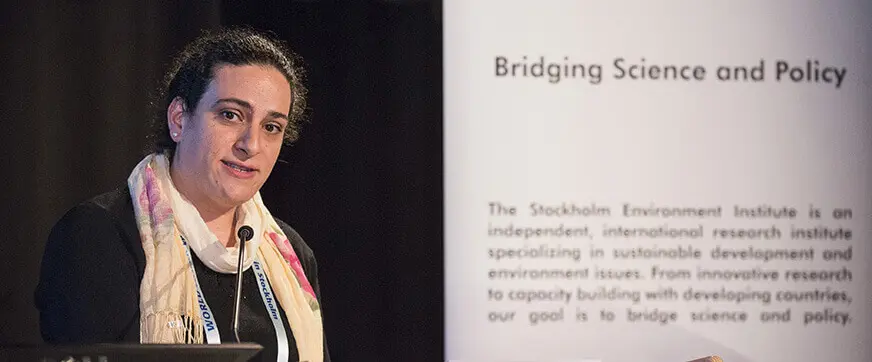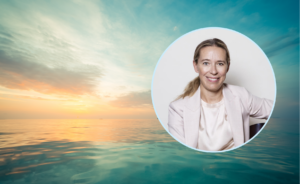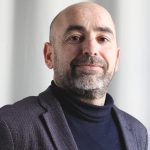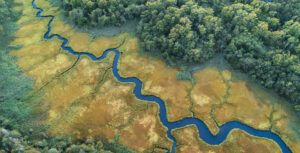- SIWI – Leading expert in water governance
- /
- Latest
- /
- Water Governance Facility at World Water Week 2014
Water Governance Facility at World Water Week 2014

The UNDP Water Governance Facility at SIWI arranged and participated in a range of events at the 2014 World Water Week in Stockholm.
Like the previous year, the WGF invited WWW participants to an evening mingle at the SIWI booth in order to present the team, on-going initiatives and to launch some recent publications. The event highlighted the continued UNDP-SIWI collaboration, from its inception in 2005 and now extended until the end of 2017. The extended UNDP-SIWI collaboration also involves the second phase of GoAL WaSH. Achievements from the first phase are summarised in a brochure entitled “Beyond the Hardware“.
Other launches at this social event included the new “Training Module for Water Integrity in Latin America and the Caribbean” which represents the expansion of capacity development of Water Integrity Programme (WIP) also to Latin America. From the previous work in Sub-Saharan Africa, the book of Case Studies collected in conjunction with the 1st African Water Integrity Summit, was also made available.
The mingle also marked the conclusion of the Transcultural Transparency research endeavour with the release of “Working with indigenous peoples in rural water and sanitation: Recommendations for an intercultural approach.”
The WGF also works with Integrated Water Resources Management, for which a manual on the Human Rights-Based Approach is being developed in collaboration with Cap-Net. Finally, WGF contributes to the building of trust, capacity, and platforms for cooperative management of international waters through the UNDP Shared Waters Partnership. Download the SWP brochure.
Nexus in the Middle East and North Africa – Monday 1 September, 14.00-17.30
The WGF engaged in a dialogue on regional cooperation for sharing solutions on the water-energy-food nexus in the Middle East and North Africa seminar “MENA Nexus Seminar: Regional Cooperation for Sharing Solutions“. The seminar was co-convened by the Stockholm International Water Institute, Stockholm Environment Institute, Global Water Operators Partnership Alliance, and GIZ. The seminar was held as part of an initiative to build ownership for the nexus approach and a community of practice and research bridging science and policy making.
Beyond Asset Management – Tuesday 2 September, 9.00-12.30
As part of a new cooperation with UNICEF on upstream water governance work with emphasis on accountability, the WGF and UNICEF co-convened a well-attended seminar on sustainability of water and sanitation services: “Beyond Asset Management: Sector Analysis and Partnerships for Sustainable Service Delivery in WASH“. The seminar first introduced approaches and tools for addressing and evaluating sustainability in WASH services, and then on how to integrate accountability in the sustainability debate – an objective of the recently started collaboration between the WGF and UNICEF. A presentation by Alejandro Jiménez (WGF) on the importance of accountability for enhanced sustainability was followed by country examples of actions on the ground. Marianne Kjellén (WGF) facilitated a discussion with the participants around what brings motivation and sustainability. A final panel discussion, with the participation of Joakim Harlin, Senior Water Adviser at UNDP, focused on the importance of sustainability in the future SDGs.
Indigenous Peoples and Competing Water Claims – Wednesday 3 September, 17.45-18.45
Furthermore, the WGF convened a side event on “Competing water claims: Indigenous peoples, mining and hydraulic infrastructure development“. The event explored the effects on indigenous peoples from mining and hydraulic infrastructure and how improved collaboration between indigenous peoples and private sector can reduce negative effects on the environment and the peoples. Jiménez and Moa Cortobius represented the WGF, alongside: Ikal Ang’elei, director of the NGO Friends of Lake Turkana; Stefan Mikaelsson, President of the Swedish Sami Parliament; Sue Jackson, Griffith University; and Ross Hamilton, International Council on Mining and Metals.
Jiménez presented the preliminary findings from an exercise of the preliminary findings from an exercise of mapping conflicts between indigenous peoples and industry water users worldwide. In his presentation he showed that, to date, among the 386 identified conflicts less than 10 percent had succeeded in reaching significant cooperation to date and that many have undergone a violent stage. The research findings also indicated an increased sensitivity towards indigenous peoples’ claims. For the future, the WGF hopes to be looking deeper into case studies of successful collaborations, to enable sharing of good practices and guidance on how to advance towards fruitful collaborations, fairness and win-win solutions.
This endeavour is a spin-off from the work on Transcultural Transparency and findings – Working with indigenous peoples in rural water and sanitation: Recommendations for an intercultural approach – resulting from the research partnership with the Millennium Development Goals Achievement Fund (MDG-F) and the University of the Autonomous Regions of the Nicaraguan Caribbean Coast (URACCAN).
Water Integrity – Thursday 4 September, 9.00-12.30
Together with Water Integrity Network, Cap-Net and the UNDP Global Programme on Anti-Corruption (GAIN), the WGF also convened the seminar “Assessing the Advantages of Sectoral Anti-Corruption Approaches in Harmony with IWRM“. The seminar discussed how corruption in the water sector can be addressed despite a challenging national governance context and whether ‘Islands of Integrity’ at the sector level can be created in countries with pervasive corruption levels. The seminar shared lessons learned from a diverse set of water stakeholders with experiences from water integrity work at the local, utility, national, basin and global scales. Lessons were also shared from the Extractive Industries Transparency Initiative (EITI). During his keynote presentation, Jonas Moberg from EITI concluded that ‘a sector-based approach to fighting corruption could work for the water industry but it needs to be narrowly focused with the right people around the table working towards a single standard for practical, meaningful transparency’.
Capacity Building in Southern Africa – Thursday 4 September, 9.00-12.30
The WGF was heavily involved in the arrangement of the seminar on “Building Capacities of Water Sectors in Transition: Lessons from Southern Africa“. James Leten shared his insights from the ‘Water Integrity Capacity Building Programme for Sub-Saharan Africa’ as an example of capacity building in the region. The session further involved a facilitated debate among government and water utility representatives from southern Africa on how to capitalize on the numerous capacity building interventions in water management in the region.
Most recent

SIWI’s endorsement of the COP29 Declaration on Water for Climate Action
- Water and climate
- World Water Week
- Water governance

Women hold the key to building climate resilience
- Gender and water
- Resilience through water

World Water Week and SIWI in 2025
- World Water Week
- Resilience through water

SIWI-WASH experts join IVL




